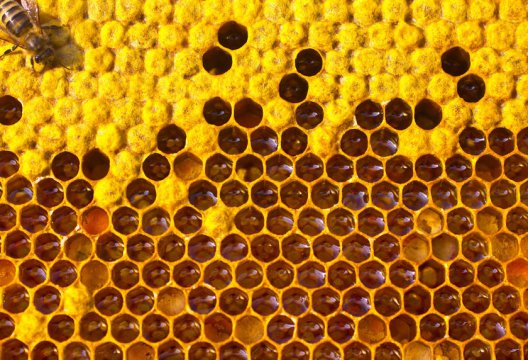In Europe, the number of honeybee colonies fell by 12%

Photo of The physicist / Fotolia
Science News, referring to the work of scientists at the University of Strathclyde (Scotland), publishes the results of a six-month study on the calculation of the number of colonies of honey bees. According to the data obtained, since the beginning of 2015, the number of bees has decreased by 12%, with the largest decline in the population in Ireland, Wales and Spain. The possible reason for this is the low temperature for the spring and summer months, which was observed last year in Norway, Scotland, Sweden, Denmark and Ireland: it ranged from 12.8 to 14.4 ° C.
This kind of research is carried out by the European specialized international non-profit organization - COLOSS (the name is derived from the English words COLony LOSses), dealing with the issues of beekeeping. It provides data for study: in particular, 23 thousand respondents took part in the last study, and for the first time observations were obtained from Russia and Ukraine. As a result, it turned out that, out of about 470 thousand bee colonies, about 68 thousand did not survive the winter of 2015, which is about 15% of the total number of bees. This number has grown about two times, compared with the same season in 2014.
Geographically, the loss of bee colonies is unevenly distributed. If the “primacy” of this year belongs to Ireland, then last year the “leaders” were the countries of central Europe and, probably, this trend continues in time: for example, in Austria 25% of bees died, and in Norway only 5%. As mentioned above, the possible reason for such losses may be cold spring and summer weather, which caused a slowdown in the development of bee colonies. However, since the same was observed among the population of parasitic varroa mites, which use honey bees as the host organism, it is impossible to recognize the low temperature as the sole cause of such losses. A full map of potential honeybee problems in Europe is shown below:
')

In November 2015, Geektimes noted that climate change, even minor, already has a direct impact on the lifestyle of many people. So the producer of Belgian beer lost the possibility of natural fermentation of beer in the air due to too high air temperature, which did not correspond to the accepted recipe for the preparation of this type of drink.
In mass culture, Albert Einstein is usually credited with a thought that sounds like this: "If bees disappear from the face of the earth, humanity will last four years." This implies that in the absence of bees, the pollination of plants will cease, which will cause their extinction, which in turn will create problems for animals and, eventually, for humans. Apparently, this is not true , and foreign words were attributed to the great physicist in a specialized brochure for beekeepers, anticipating the habit that appeared in social networks a decade later. However, this does not negate the actuality of the problem itself - in a similar vein, several other scientists, including Charles Darwin, expressed themselves in the same way.
Source: https://habr.com/ru/post/396681/
All Articles